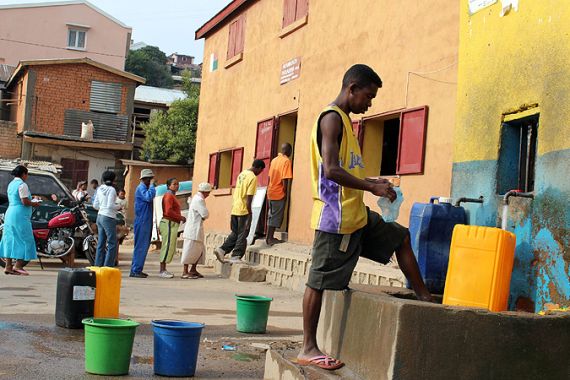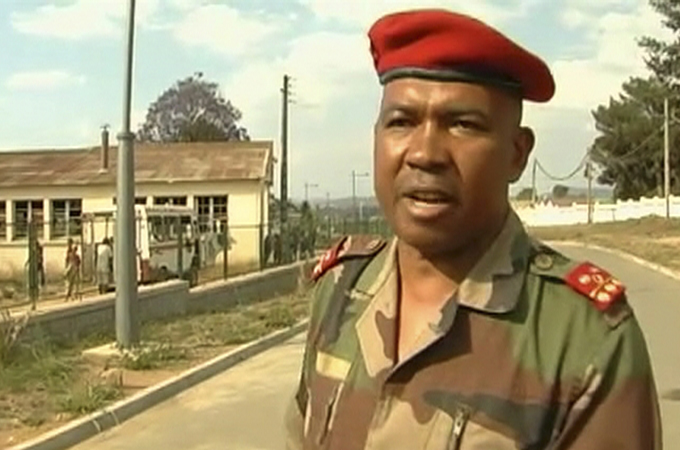Madagascar officers in ‘coup bid’
Group of senior army officers claim they have seized control of the country amid a constitutional referendum.

 |
| Dissident officers declared a takeover of power, as voters decided on a crucial constitutional referendum [REUTERS] |
A colonel with the Madagascan military has said he and 20 other top-ranking officers have taken over the Indian Ocean island nation of Madagascar.
Colonel Charles Andrianasoavina, one of the main backers of a power-grab last March by Andry Rajoelina, the president, made the coup declaration on Wednesday at a military base near the airport.
Later on Wednesday, Andrianasoavina told France 24 news network that his group planned to seize the presidential palace and main airport.
Witnesses said about 1,000 people erected a roadblock and set tyres ablaze near military camps housing the rebel soldiers, who said they had formed a ruling committee to run the country.
But police dispersed the crowd, and Camille Vital, the prime minister, said the security forces would ensure the rule of law was upheld.
“They tried to have a coup d’etat but so far everything is under control,” Vital told France 24. “I don’t
know what mosquito bit them, but they have broken ranks and committed an error.”
Constitutional referendum
The supposed coup comes in the midst of a referendum to accept or reject a new constitution that calls for keeping Rajoelina in power indefinitely, and the country’s military leadership vowed to crush any rebellion.
“If there is a mutiny, we have to intervene. We cannot negotiate with someone who mutinies,” Andrianazary, a military-police general, was reported by the Reuters news agency as saying.
Members of the security forces have been on the streets during the referendum voting, which has continued as few on the island are apparently aware of the officers’ declaration.
“It’s a war of communiques for now but things could degenerate quickly,” Lydie Bokar, a Madagascar expert at the Lille-based political risk consultancy StrategieCo, said.
Observers fear an increase in instability in a country that has experienced frequent political upheaval.
“The president is believed to be safe in his palace,” Al Jazeera’s Mei-Ling McNamara said. “But you can sense divisions even within the military. They made [Rajoelina], and in some ways they can take him down.”
The country’s military has suffered from rifts since Rajoelina’s 2009 coup, when he toppled Marc Ravalomanana, the then leader, and scrapped the old constitution.
Rising tensions
Tensions have risen in the capital in the run-up to the constitutional referendum, with sporadic skirmishes between police and opposition supporters after the government banned public meetings.
But some analysts say Rajoelina’s failure to end the leadership squabbles and deliver on populist pledges have eroded his popularity.